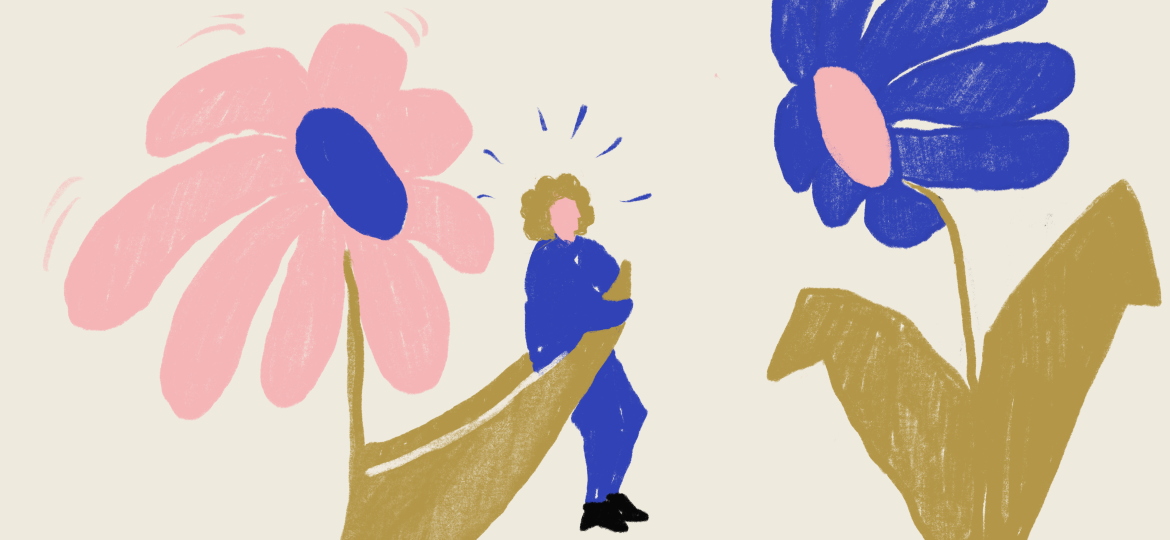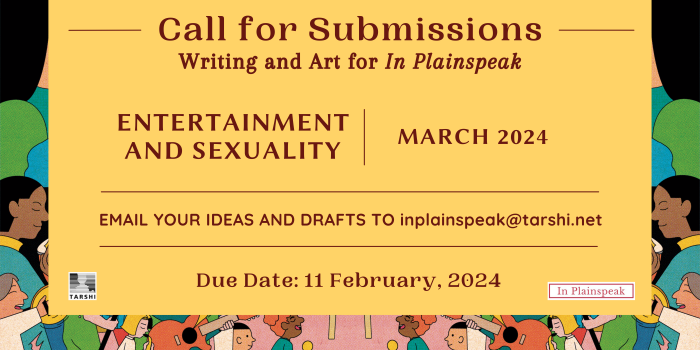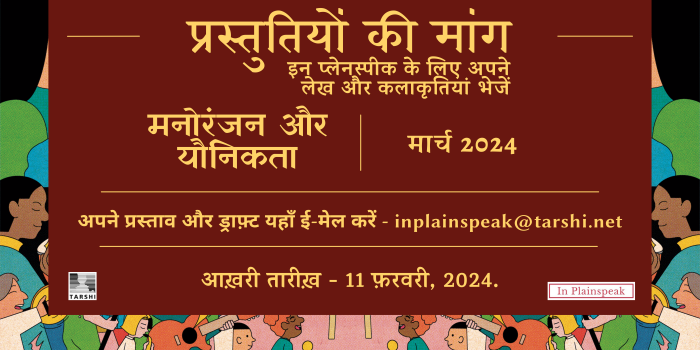
In a world increasingly riven by suspicion, hatred and destruction, it feels awkward to say “Happy New Year!” But then, it is only through reminding ourselves that it is indeed a new year and an opportunity to build a new and better world together, that we can forge new connections and nurture old ones to sustain hope, grace and optimism in times when otherwise we might give in to despair and defeat. And so, we grant ourselves the possibilities of joy, laughter, wellbeing and celebration with our January 2024 anthology issue that explores the intersections of play, desire, pleasure and sexuality.
Psychotherapist Sadhana Vohra, in an interview with Radhika Chandiramani, talks about how we can build joyful lives from a sense of connection with others, reminding us that it is that sense of deep connectedness, the knowledge that we are loved and respected, that is the most powerful motivator for us humans. Shweta Krishnan explores ideas of attachment across various relationships including friendship, romance, monogamy, polyamory, and marriage to find that it is with our friends that “we become something other than what we could be on our own. We become more in a joyous way.” And this is something that Saswati too discovered when she became part of a small collection of writers who wrote, shared and responded to each other’s stories and then went on to becoming part of different fandoms and to write simply for the joy of it. Rohini Banerjee reviews Fangirl by Rainbow Rowell to explain the fascination that fandom holds and how it allows for freedom of expression. If fandoms brought Saswati to a newer appreciation of herself and of others, it is porn that led Ankita Dhar Karmakar to articulate her queerness and find pleasure in subversive desires by questioning linear understandings of power and what may turn one on.
Our quest for joy, pleasure and safety seems to be inextricably tied up with space. In Mumbai, Tanvi Khemani discovered that the local trains offered her the possibility to “go where I pleased and do what I pleased”, taking risks, being aware, making choices, and to feel at home in the city, and by extension, in the world. In Delhi, Manvendra finds that the metro transports not only people but also desire; that it creates a script of desires written and read by certain bodies and provides a space for queerness by blurring the lines between the private and the public. Shilpa Phadke journeys online, loitering wherever the whim may take her, and argues that despite all the talk about online forays being filled with danger, the Internet is just as much a space for fun and pleasure. Wesley D’Souza only ever wanted a space where he could be himself and not be criticised. Finally, he found it. Read the Hindi translation of his article.
Self-care is a notion that is being bandied about quite frivolously (as in, being a ‘fad’) and dangerously (as in, for our mental-health as well as our wallets) these days. Rukmini Banerjee focuses on what its main aspects are and how true self-care means also caring for and connecting with others.
We cannot let you go without pointing you in the direction of a few laughs as you watch Risky Business, a short film in which a mother has a couple of things to say to her daughters when they ask her “Mummy, how can you?” on discovering what she has been up to in her own quest for pleasure.
Stay well, and may we all strengthen nurturing connections!


Cover Image: Artwork by Izabela Markova for The Greats